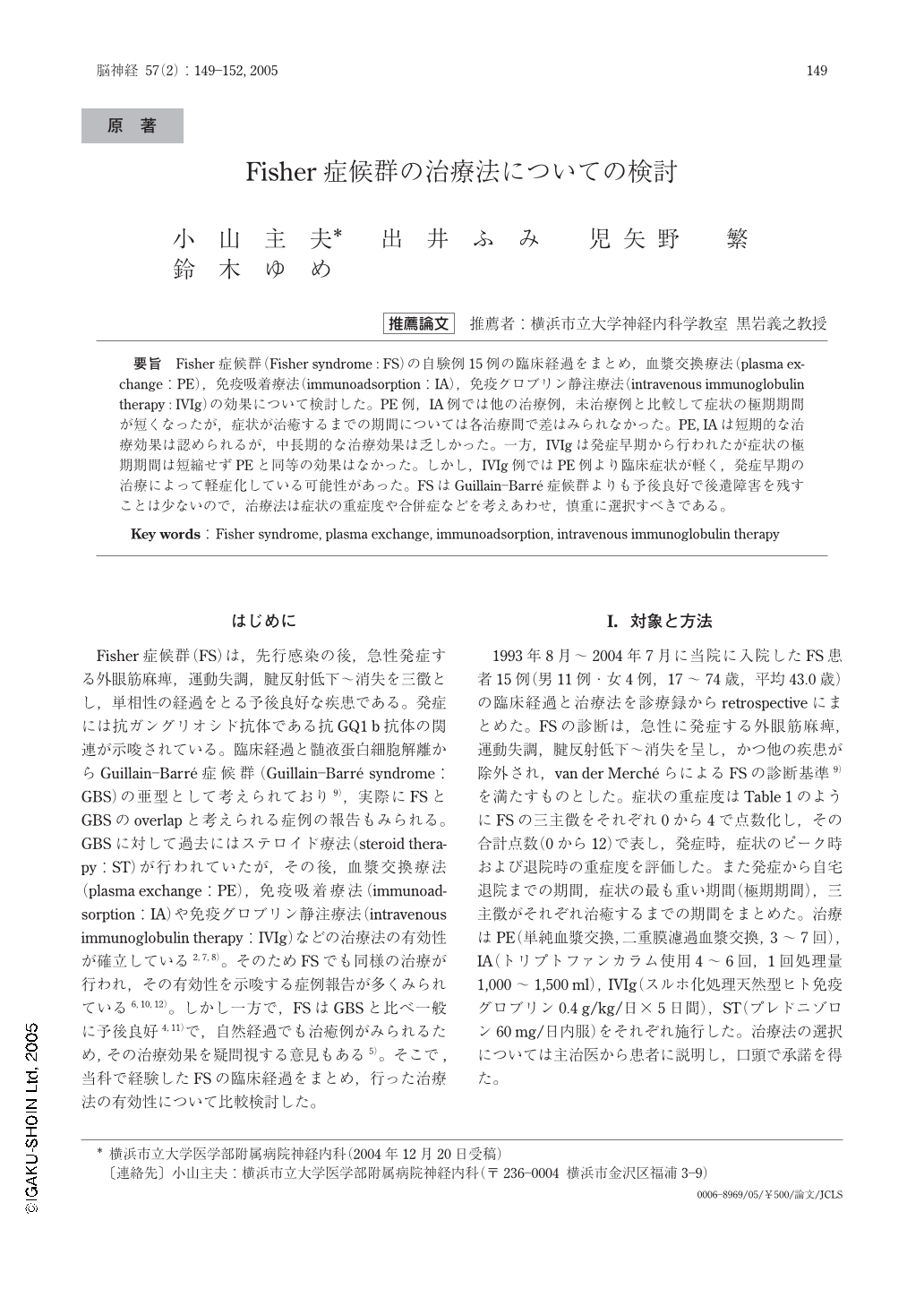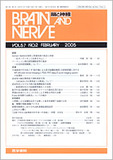Japanese
English
- 有料閲覧
- Abstract 文献概要
- 1ページ目 Look Inside
要旨 Fisher症候群(Fisher syndrome : FS)の自験例15例の臨床経過をまとめ,血漿交換療法(plasma exchange:PE),免疫吸着療法(immunoadsorption:IA),免疫グロブリン静注療法(intravenous immunoglobulin therapy : IVIg)の効果について検討した。PE例,IA例では他の治療例,未治療例と比較して症状の極期期間が短くなったが,症状が治癒するまでの期間については各治療間で差はみられなかった。PE,IAは短期的な治療効果は認められるが,中長期的な治療効果は乏しかった。一方,IVIgは発症早期から行われたが症状の極期期間は短縮せずPEと同等の効果はなかった。しかし,IVIg例ではPE例より臨床症状が軽く,発症早期の治療によって軽症化している可能性があった。FSはGuillain-Barré症候群よりも予後良好で後遺障害を残すことは少ないので,治療法は症状の重症度や合併症などを考えあわせ,慎重に選択すべきである。
We studied clinical courses of 15 cases of Fisher syndrome(FS) and examined therapeutic efficacy of plasma exchange(PE), immunoadsorption(IA), intravenous immune globulin(IVIg), and steroid therapy(ST). Compared with other treatments, PE and IA had shortened the peak period of the symptoms, but had not revealed the difference of the duration of illness between one another. As for PE and IA, the short-term effect was seen, but did not show the long-term effect. Though IVIg was done at the early stage, it did not shorten the peak period. So we conclude IVIg for FS to be effective not so equal as PE. However, clinical manifestations were milder in IVIg cases than PE, and there was a possibility that the symptoms of FS became mild by early treatment with IVIg. Compared with Guillain-Barré syndrome, it is rare for FS to leave aftereffects and convalescence is good, so the choice of a therapy should be considered with a severity and complications.
(Received : December 20, 2004)

Copyright © 2005, Igaku-Shoin Ltd. All rights reserved.


